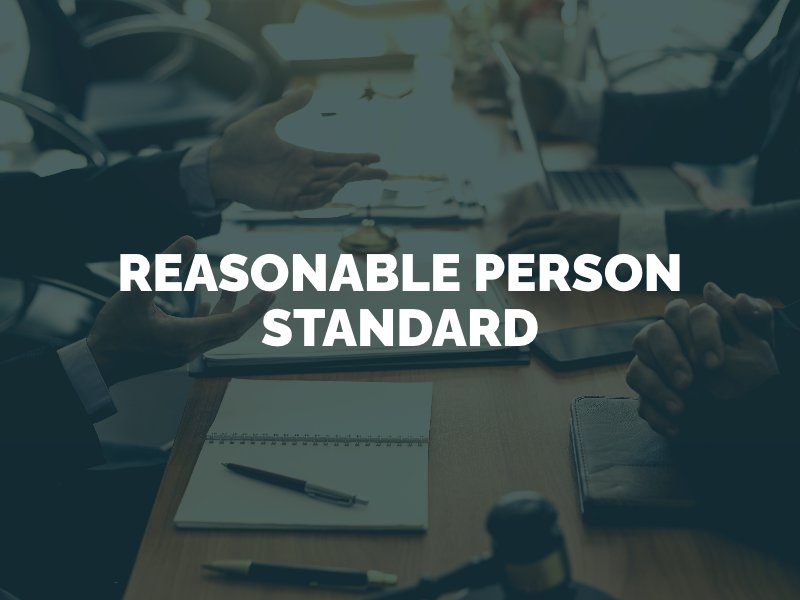“Reasonable” is a common word used in personal injury law. Most personal injury cases are based on the legal theory of negligence, or the failure of a person or party to use an ordinary amount of care. The reasonable person standard sets a bar for the actions and behaviors that one would expect from a reasonable or prudent person. If a person’s conduct falls short of this standard, he or she may be guilty of negligence and held liable for the victim’s injuries.

The reasonable person standard is a legal concept used in personal injury law to determine whether an individual’s actions were rational or not. It is an objective standard used to assess if a person exercised the level and degree of care that a reasonable person would have in the same or similar circumstances. This standard is typically used in a case that is based on negligence.
If the plaintiff or filing party in a tort lawsuit is claiming negligence, he or she bears the burden of proof to establish that the defendant owed the plaintiff a duty of care and breached this duty, causing the harm in question. Proving negligence often involves holding the defendant against the reasonable person standard. Whether or not the defendant’s act or omission constitutes a breach of duty depends on how a reasonable person would have acted in the same situation.
The reasonable person standard takes into account the specific circumstances of each case. What is reasonable will depend on the factors involved, such as the nature of the activity the plaintiff was engaged in at the time of the injury, the relationship between the defendant and plaintiff, the experience and knowledge of both parties involved, and any foreseeable risks of harm.
No, not all tort claims employ the reasonable person standard since it is possible to base a personal injury case on a legal foundation other than negligence. If a defective product causes harm, for example, the victim may be able to file a strict product liability lawsuit. This type of claim does not require the plaintiff to prove or establish negligence.
A product manufacturer can be held responsible for a product that contains a defect and causes an injury, even if the manufacturer acted reasonably. The application of the reasonable person standard can also depend on factors such as the age of the defendant and his or her specialty. The courts will determine how the reasonable person standard will apply to each specific case.
An exception where the reasonable person standard might not apply during a tort claim is if the defendant has a mental incapacity, such as a mental illness or cognitive disability. A defendant who can establish mental incapacity may not be held to the same standards as a person without the condition. Therefore, the typical standard for what is reasonable or prudent may not apply. In this case, the courts may decide not to use the reasonable person standard at all, or to compare the person’s actions to the reasonable behaviors of someone with a similar incapacity or disability.
Finally, the reasonable person standard may be altered or elevated in a case involving someone with special skills or who was acting in a professional capacity at the time of the incident. For example, health care providers such as doctors and surgeons are held to high standards of care. These professionals have extensive medical training, knowledge and experience. This means that in a medical malpractice lawsuit, they will be compared to someone with similar medical training or who works in the same profession to determine what was reasonable based on the circumstances.